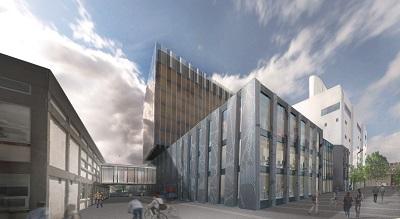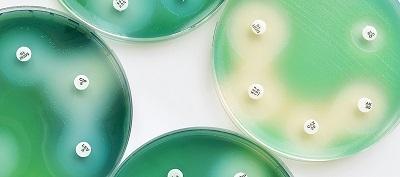New research facility to tackle antimicrobial resistance
A team of scientists are to pool their expertise to tackle antimicrobial resistance - one of the biggest global health challenges, which threatens to turn medical progress back a century.
A newly created research facility at the University's School of Biological Sciences will bring together scientists from a range of disciplines to address the problem, which is estimated to cause 700,000 deaths each year.

A £411,000 award from the Garfield Weston Foundation will support the creation of the lab, to be housed in the refurbished Darwin Building as part of the 'Building a new Biology' project.
Many bacteria, viruses and parasites are developing resistance to drugs that would have previously killed them. Microbes with this ability set up a 'survival of the fittest' scenario and can then multiply into increasingly treatment-resistant 'superbugs'.
Scientists in the facility will seek to better understand the ways in which bacteria, parasites and viruses are developing resistance to treatments, and how best to address this.
While microbes naturally evolve to survive treatments over time, the problem is drastically sped up by the over use or misuse of treatments, for example by taking antibiotics for viral infection such as colds. The increasing use of antibiotics in cattle and other livestock is also creating a breeding ground for antimicrobial resistance.
Dozens of researchers, and their collaborators around the world, will work to aid scientific knowledge and understanding of resistance to antibiotic or antiviral treatments – collectively known as antimicrobial resistance – in people and animals.
Failing to tackle this growing issue could mean that many diseases, which are currently well managed, could once again reach pandemic status. A recent UK Government-commissioned review, the Review on Antimicrobial Resistance estimates that 'by 2050, 10 million lives a year are at risk due to the rise of drug resistant infections'.

The researchers aim to develop fast diagnostic tests for infections, to ensure drugs are used appropriately and avoid 'trial and error' prescriptions. They will also seek to support development of vaccines and alternative treatments for infection, such as breeding livestock that are naturally resistant to disease to minimise wide-spread antibiotic use.
The work will also include efforts to set up global surveillance of antimicrobial resistance. An ambitious project will track the development of resistance through samples collected at sewage outlets in 83 cities around the world.
Researchers will aim to build on the University's first class capabilities in biology, medicine and veterinary medicine, and its links with top researchers and clinicians around the world. The work will also draw expertise from social science, physics and computational biology as well as building on the School's core strengths in microbiology, immunology and synthetic biology.
The University's historic post of Professor of Natural History, which was established in 1770, will be reintroduced as head of the lab dedicated to antimicrobial resistance.
Antimicrobial resistance is one of the greatest challenges facing society today, both in terms of human health and wellbeing, and in the stability of our livestock farming. This support from the Garfield Weston Foundation ensures that Edinburgh will remain at the forefront of the fight against AMR research for years to come.
Our Trustees are delighted to support the important work on antimicrobial resistance at the University of Edinburgh. Cutting-edge scientific research is urgently needed as resistance to antibiotics is a huge threat; we wish the University great success in tackling this, and other global challenges, through their 'Building a New Biology' project.

